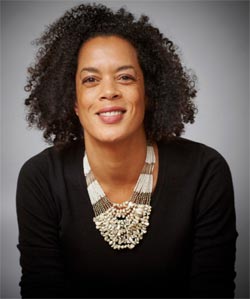And at this moment, when Mike has nowhere to hide and nothing left to tell himself, then he can hear, and he knows that he is not alone, and he knows what it is that he must do. It has been done before, even by Him who speaks, the Father of All, who gave His own son, His beloved, that others might be saved.”
Wolff’s “The Night in Question” demonstrates how there is a fine line between an act that is just and an act that is good. Is it just that Mike, the father in Frank’s story, sacrifices his son in order to save people on a train may not be worthy of saving? Is it just that Ben, Mike’s son, who is innocent in this world, has to die in order to save the lives of so many corrupt people? Is Mike’s decision good in either case? Justice is “owed” to a particular person(s) when an idea or an object that is rightfully theirs (such as Mike’s promise to give the public a safe public transportation system) is taken from them. As a worker on the drawbridge station, Mike “owes” safety to the passengers on the train because it is their right to feel safe on public transportation. Does Mike “owe” safety to his son? Although this question may seem obvious–of course Mike owes Ben his safety, he is his father– it becomes a little more complex when one thinks about how morality, often referred to as “goodness,” does not normally permit someone to act unjust even for the sake of the greater good. While the story that Frank, the narrator’s brother, tells about Mike and Ben is meant to serve a higher purpose in explaining the Lord’s incomprehensible love for man-kind, I find it interesting to think of it in a more worldly context as well.
Frances didn’t mind a fight, and she especially didn’t mind fighting for her brother.
The end of Wolff’s “The Night in Question” shows how Frances, the narrator, has an incomprehensible love for her brother, much like the incomprehensible love God shows man-kind when he sacrifices his only son for the salvation of all men. Throughout Frances’ life, she has sacrificed her own happiness while protecting Frank from “neighborhood punks, snotty teachers and unappreciative coaches, loan sharks, landlords, bouncers.” (642) Frances has always protected Frank in hostile situations, especially when she is protecting Frank from “the Father of All, the incomprehensible bully.” (642) It seems as though Frank has based the story of Mike and Ben not only off of the scarification of God’s one and only son, Jesus Christ, but also off of Frank’s own life with his sister, Frances. Frances has sacrificed her own happiness in life to protect her brother. When Frances poses the question, “I’m stuck in the gears and here comes the train with Mother Teresa and five hundred sinners on board, whoo whoo, whoo whoo. Who, Frank, who? Who’s it going to be?” (642) she ultimately already knows the answer that Frank will give her. She knows that he will choose her over the train full of people because Frank loves her, and what greater joy is there than protecting and saving someone one loves? Frances cannot grasp the idea of killing a loved one in order to save a mass of people because she has spent her entire life protecting her one and only brother.
It’s okay, Franky. I’m here.
The last two sentences of the story remind me of the psalm 118:6 in the Bible, “The LORD is with me; I will not be afraid. What can mere mortals do to me?” In a way, Frank interprets the same concept of the psalm with his own words, “He will not leave us alone. He is with all of you, as he is with me” which also relates to how Frances has never left Frank alone or indefensible. The “mere mortals” in psalm 118:6 are like the people who have treated Frank unjustly in his own life. The people on the train in Frank’s story are like the sinners of the world referenced in the bible, who are in need of salvation to have everlasting life. What can mere mortals do to Frank when he has the undying love and protection of his sister?
 From epic legends like Gilgamesh to anecdotes, we tell each other stories every day: “Guess what happened?” Typically my seven-year-old son’s first words when he dashes through the door at the day’s end. A woman is late for lunch with a friend, she sits down, she says: “Just listen to the day I’ve had . . .” A man at a bar leans across to another man: “So I was driving down the freeway . . .” And so it goes. Storytelling is a symbiotic process, an exchange between teller and listener, between writer and reader. It is the way my son shares the highs and lows of his day, the way the woman who is late encourages her friend’s sympathy rather than irritation, how the man at the bar extends the hand of friendship.
From epic legends like Gilgamesh to anecdotes, we tell each other stories every day: “Guess what happened?” Typically my seven-year-old son’s first words when he dashes through the door at the day’s end. A woman is late for lunch with a friend, she sits down, she says: “Just listen to the day I’ve had . . .” A man at a bar leans across to another man: “So I was driving down the freeway . . .” And so it goes. Storytelling is a symbiotic process, an exchange between teller and listener, between writer and reader. It is the way my son shares the highs and lows of his day, the way the woman who is late encourages her friend’s sympathy rather than irritation, how the man at the bar extends the hand of friendship.